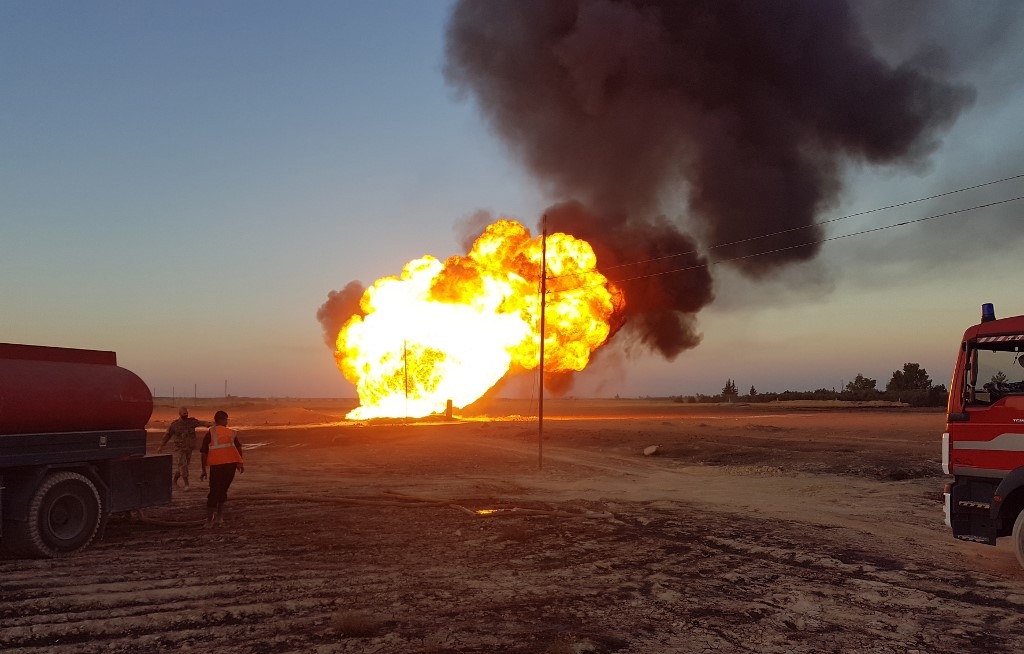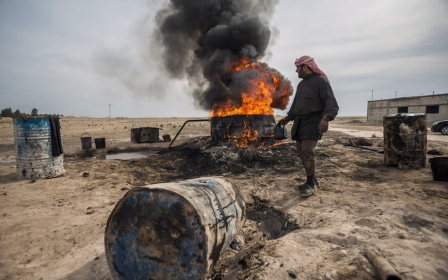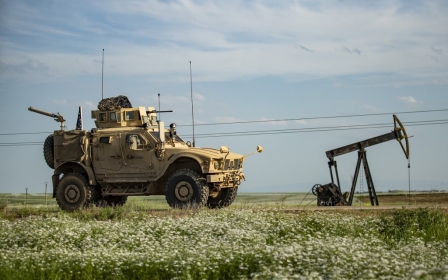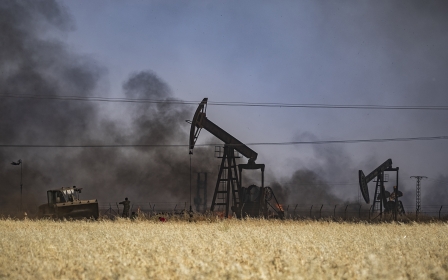Islamic State group behind Syria oil pipeline attack: US

The Islamic State group (IS) was behind an attack on an oil pipeline in Syria that caused a nationwide blackout overnight, a US official said on Monday.
Earlier in the day, Syrian state media cited the nation's energy minister as saying that the explosion on the Arab Gas Pipeline, between Adra and al-Dhamir, was the result of a "terrorist" attack.
But speaking from Geneva, US Syria envoy James Jeffrey said the incident appeared to bear the hallmarks of an IS attack.
"We are still looking into that. But it was almost certainly a strike by ISIS," Jeffrey told reporters at the start of UN-sponsored talks of the Syrian Constitutional Committee, using a different name for IS.
Syrian state media published pictures of a night-time blaze it said was caused by the explosion, followed by images after dawn of a mangled land pipeline missing a large chunk.
New MEE newsletter: Jerusalem Dispatch
Sign up to get the latest insights and analysis on Israel-Palestine, alongside Turkey Unpacked and other MEE newsletters
Damascus residents told AFP they woke up on Monday with no electricity in their homes.
The electricity minister said some power stations had been reconnected and power provided to vital infrastructure, adding that by dawn electricity was gradually returning to several provinces.
The incident was the latest in a string of alleged attacks against the government's energy infrastructure.
In January, Syria's government said divers had planted explosives on offshore pipelines in the Mediterranean Sea off the Banias refinery, but that the damage had not halted operations.
Syria's war has killed more than 380,000 people and displaced more than half the pre-war population since it started in 2011 with the repression of anti-government protests.
It has also caused the Damascus regime to lose control of key oil fields, resulting in state hydrocarbon revenues plummeting by billions of dollars.
Middle East Eye delivers independent and unrivalled coverage and analysis of the Middle East, North Africa and beyond. To learn more about republishing this content and the associated fees, please fill out this form. More about MEE can be found here.




